CREATIVE LEARNING EXPERIENCES THAT CHANGE BEHAVIOR
There are Journal-Journals & then there are Reflection Journals
Journaling to Learn Requires Learning to Journal
LEARNER REFLECTION
Lesley S
6/11/20252 min read
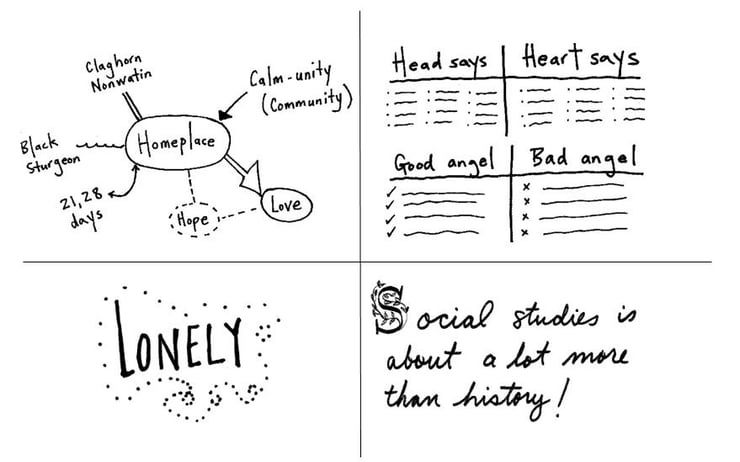

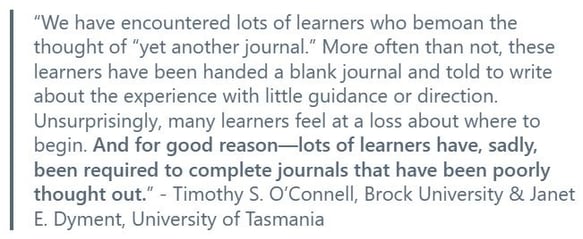

The reason learners tend to suck at journaling productively is that it’s easy just jot down what happened. But recalling of what happened when – facts – is lower-order thinking. The work lies in connecting and combining the facts into new insights that alter your perspective or change your beliefs; here is where you enter the territory of higher-order thinking.
O’Connell & Dyment advise making the purpose of the journal as clear as can be.

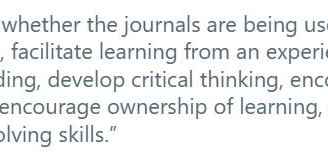
It also helps to explain that to be effective, the reflection journal doesn't have to be just text. Creativity is king, here:
A mind-map or illustration can be effective.
Summarize things with a single word.
Do a comparison of polar opposites.
And lastly, it doesn't have to be just for after the event. Journaling before and during the event contribute to overall learning.
BEFORE. Journal prompts could include: What do I want out of this experience? How can I make it productive as possible? What should I be on the lookout for. Be mindful of?
DURING. Prompt learners to quickly jot down any insights they have, anything that seems important, relevant, odd – or stands out in some way.
AFTER. To get beyond the usual recounting of what happened, which represents lower order thinking, prompts can include: How do I feel about what happened? How did I feel when it happened? Why?
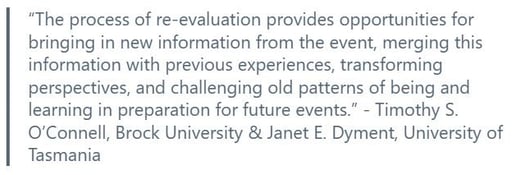

The tl;dr: reflective journaling is particularly useful for giving someone a way to evaluate their current situation and then build on - scaffold - new material. Which transforms a new experience into a learning experience.
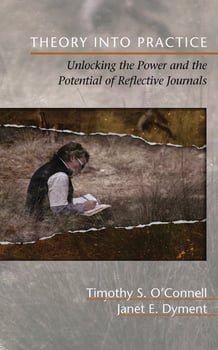

SOURCE: THEORY INTO PRACTICE: Unlocking the Power and the Potential of Reflective Journals (Information Age Publishing Inc.; 2013) by Timothy S. O’Connell, Brock University & Janet E. Dyment, University of Tasmania